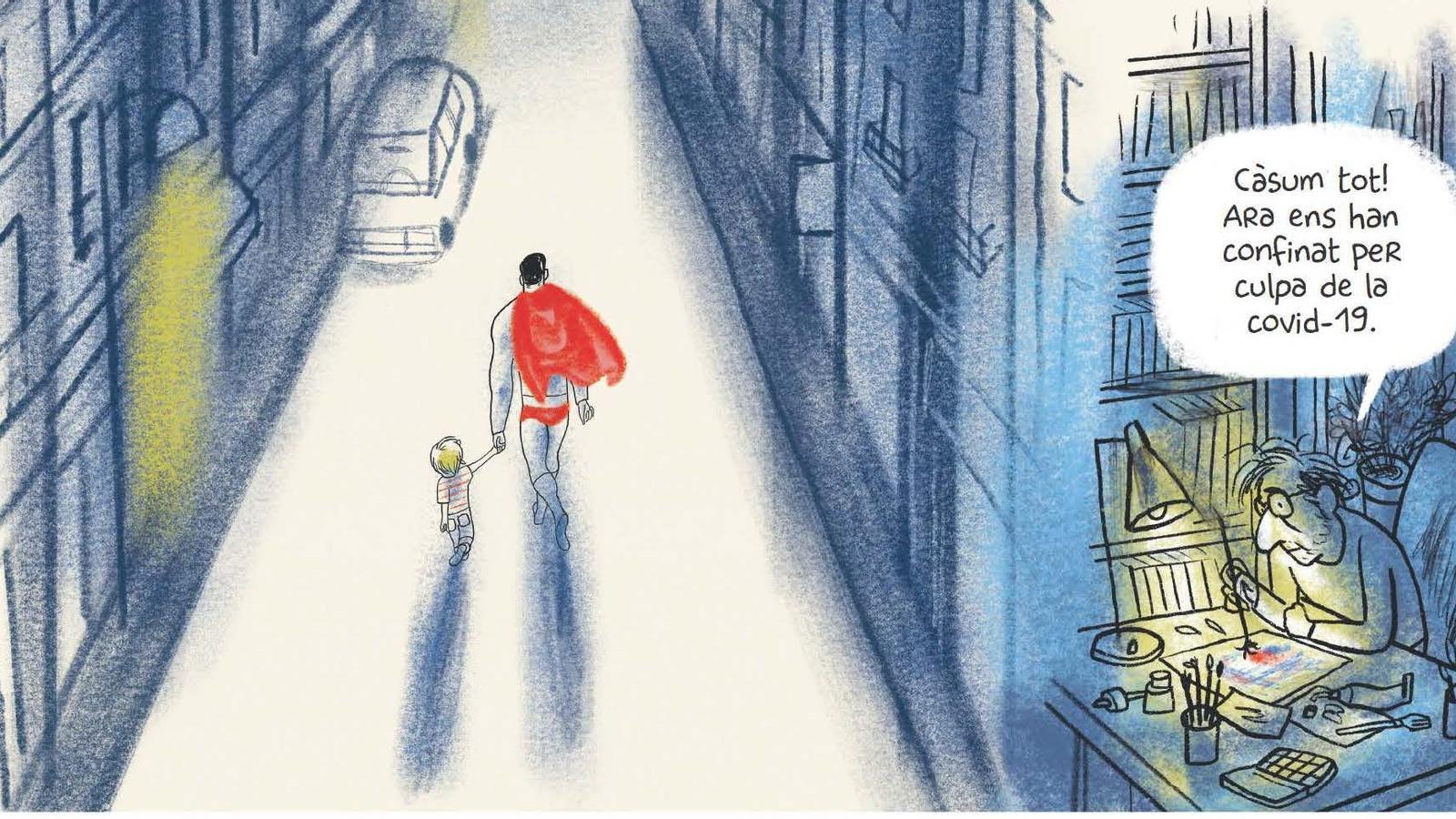Blueberry in the Lebanon War
In "An Oriental Education," Charles Berberian recalls his adolescence in a Lebanon at war.

- Charles Berberian
- Comic Planet
- 152 pages / 25 euros
- Translation: Joaquim Toset Masdeu
"We could write a story about an air force pilot. A general asks him to bomb a Palestinian camp and he refuses. Then, they condemn him for treason and want to shoot him. But in reality, instead of shooting him, they entrust him with a suicide mission. He falls in love with the chief's daughter. In fact, our hero is like in Blueberry, supports the Indians; well, in our case, the Palestinians. However… It's a shame not to do a western", explains little Pierre, Charles Berberian's childhood friend, as they walk through the streets of Beirut in the 1970s and fantasize about making comics like those of Jean Giraud, Hergé either Uderzo and Goscinny. An oriental education It unfolds in a Proustian manner, as a first-person evocation during the pandemic confinement, in Paris, when the idea of staying locked up at home reminds Berberian of the distant days of 1975, with the civil war besieging Lebanon without anyone being able to know how long it would last, and the comic vignettes of reality.
With a line as graceful as it is expressionist, in a ceaseless play of time, the narrative is presented as an anamnesis of Berberian's childhood amid historical events marked by violence, making this work a very timely and liberating album in the midst of turbulent geopolitics. The explosion that devastated part of the city of Beirut on August 4, 2020, when almost 3,000 tons of ammonium nitrate produced a terrible deflagration in the port, is linked to the bombing of Prime Minister Rafik Hariri's car on February 14, 2005, the author, and with the nightly bombings of the 1970s that forced the Berberian family to live in the hallway of their home, away from the windows. Games, beach vacations, cinema, and visits to Grandma's in the now-defunct Tarazi building are glimpsed with the detonations and the sound of the protests.
Berberian's ability to create rhythms on the page, to integrate different narrative modes into a single style, to make color a plastic form of condensation of time and to combine thick, painterly brush strokes with the continuous line of the marker and changing textures explodes in this volume. The Lovers of Shamhat. The True Story of Gilgamesh (Speaker Mon, 2023), or in the extraordinary series Mr. Jean (Norma, 2000-2009) and Henriette (Alfaguara, 2006), made in collaboration with the scriptwriter Philippe Dupuy. Like the volume Diary of an album (Planeta Cómic, 2005) was a kind of jam session between Dupuy and Berberian, open to all the rhythmic possibilities of the vignette, An oriental education It is a symphony performed between the streets of Beirut, Berberian's native Baghdad, Jordan and Greece invoked by the grandmother and the interiors of a Paris confined during the pandemic.
When Berberian invokes the death of his brother, the filmmaker Alain Berberian, and his trip to Beirut in 2018 in the first pages, a subtle musical motif evokes the fatality of coexistence with disaster in a country bordering Israel and Syria. "In Lebanon, people live beyond the line that delimits chaos. This makes the country's atmosphere governed by a certain lightness, a carelessness, an ineffectiveness that gives it an irresistible charm." It is from this praise of ineffectiveness, of coexistence with the horror of the current aggression by Israel, that the childhood imagination of Berberian and his friend Pierre, capable of employing the westerns Blueberry as a way of reading the war in the seventies, reveals the infinite potential of comics to rewrite history, to appropriate past events and transform them for the future.
